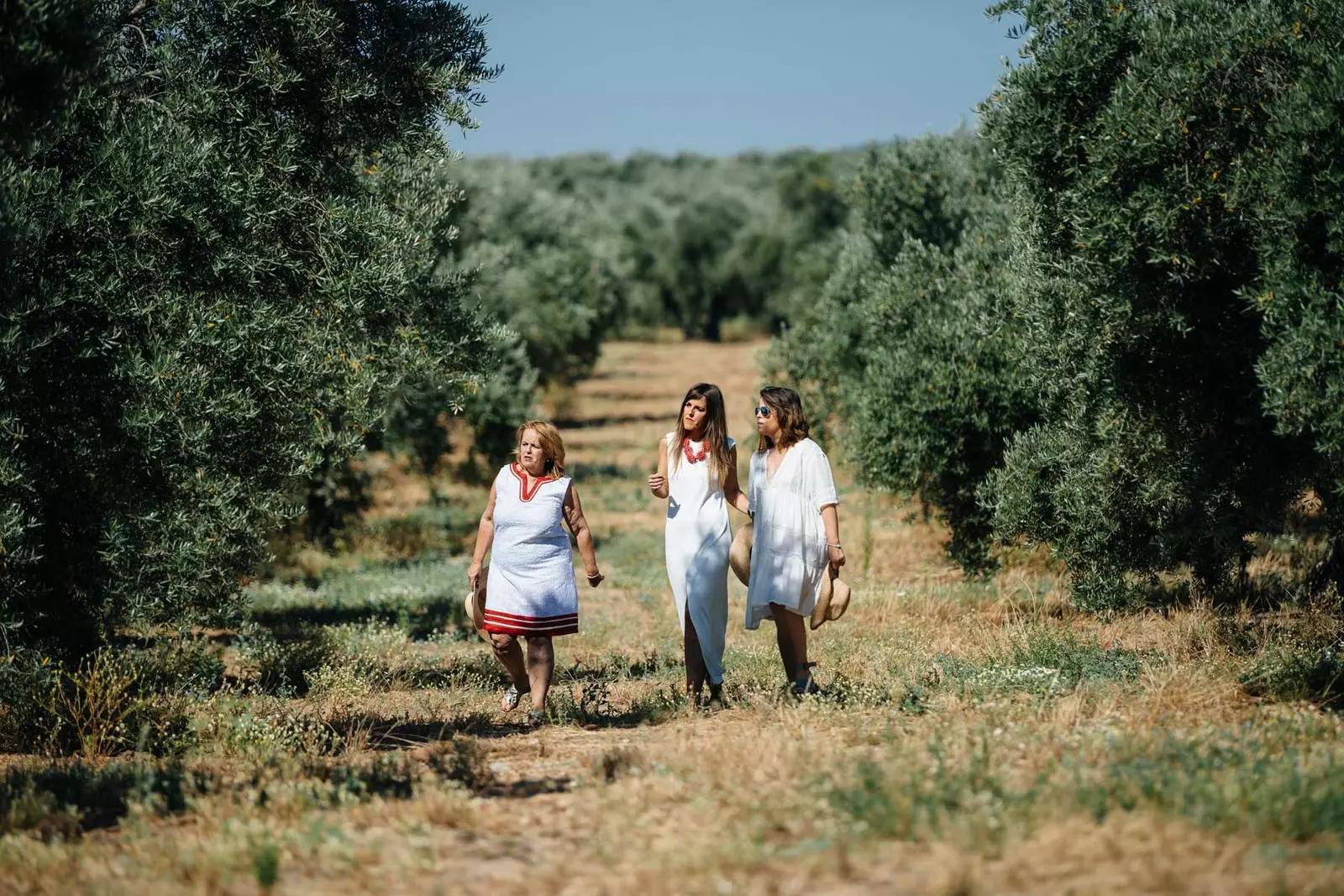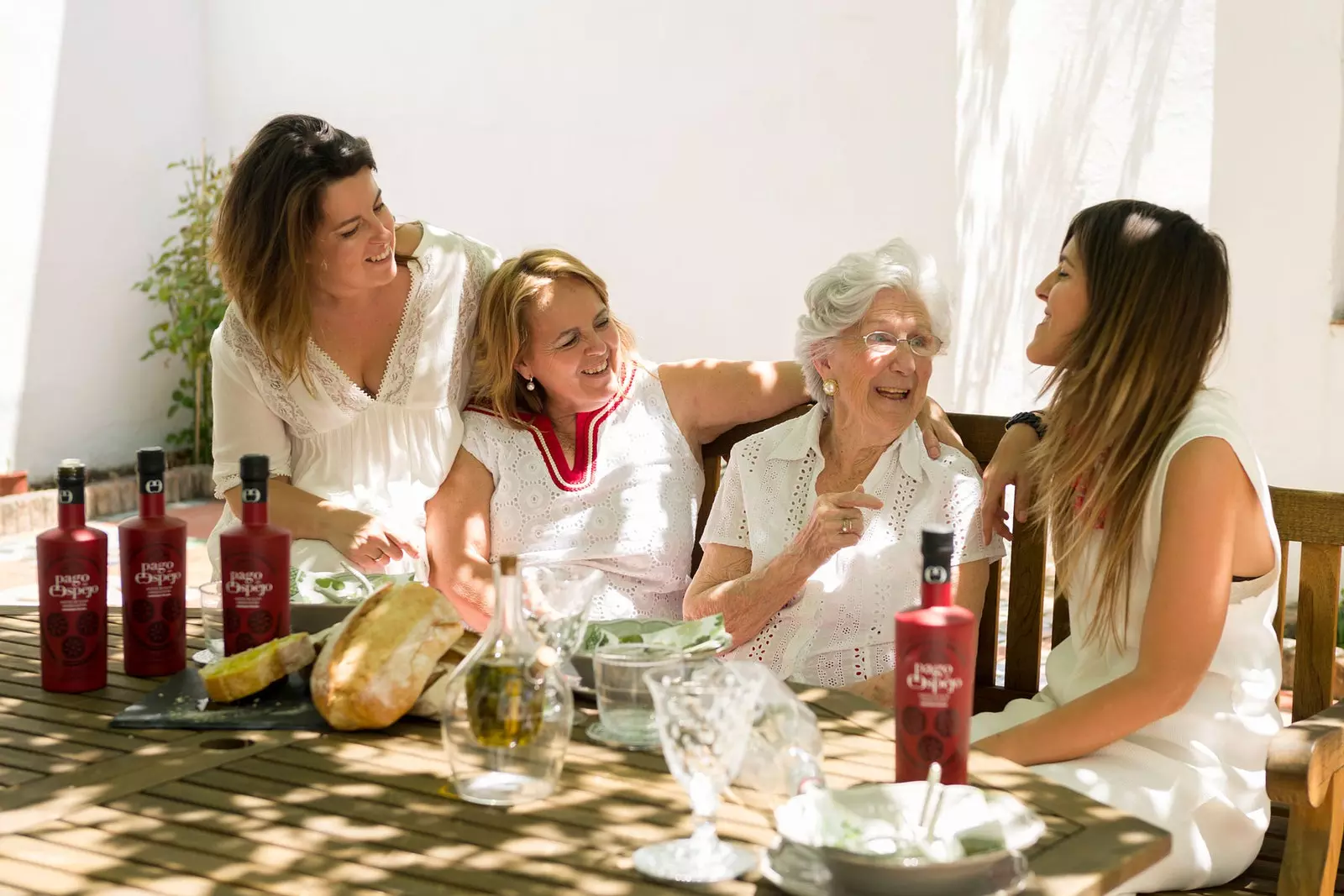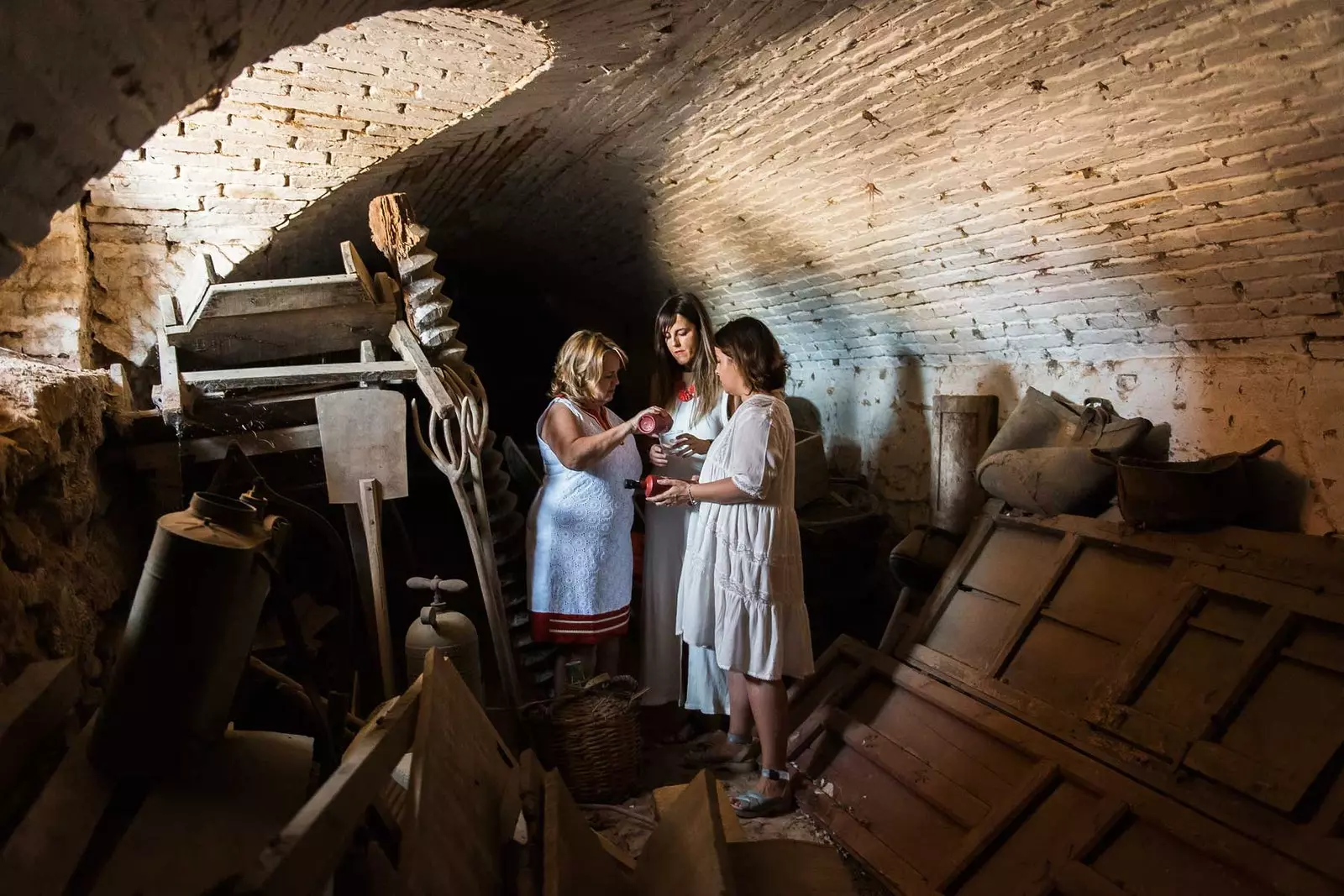
Rosario, Rosario and Mercedes among their ancient olive trees.
*With this article we begin a series of stories vindicating the work of rural women.
Jaén, 1920. A woman, Damian, discover an olive farm full of possibilities. But she is a woman and, of course, women then could not buy anything. So she convinces her husband, Manuel, to buy it. The farm is called La Condesa because already in 1781 it was a woman, a countess, who built the first mill there.
98 years later, Damiana's granddaughter, Rosario Espejo, and her great-granddaughters, Rosario and Mercedes Minchón Espejo, are the third and fourth generation of women olive growers working that farm and that they have taken the **EVOO (extra virgin olive oil)** 100% picual that they produce in “the current 200 hectares of land with eight thousand centennial olive trees” very far.

Three generations and an EVOO.
“Being the fourth generation of women olive growers is unusual, if we are not the only ones in the Jaén area”, says Rosario Minchón Espejo, commercial director of the Pago de Espejo project that she runs together with her mother and her sister, Mercedes, who is in charge of "marketing, communication."
Between the three of them they have decided not only to produce a first class EVOO but also to “put in value all the legacy of rural women”. “My great-grandmother was 100% involved in the farm work from the minute they bought the farm, she started it up, planted the olive trees, controlled it…”, she explains. “Later, my grandmother was more in administration work, but that meant directing almost 80 families who worked in the fields, from November to March. It was not valued because it might seem unimportant, but it was."
And she continues. “Once she passes my mother, she is 100% involved in farm work and she has suffered surprise from people for being a woman in charge. Comments like: 'Oh, but I have to talk to you', Rosario account. She and her sister are well aware that her mother has "paved the way" for them. “In the commercial world or the oil fairs it is more professionalized and more even, but in the field 99% are still men. And I'm not going to lie to you, there are no insults, no contempt, but there are difficult situations. And I know that I have it easier because my mother has done a lot, ”she acknowledges. “But she has had difficult moments.”

Mother and daughters, a vindictive oil.
The inequalities and discrimination suffered by women in towns and countryside is even greater than that suffered in urban environments, according to data from UN Women. The unemployment rate for rural women in Spain, for example, is 42.8%, according to data from FADEMUR (Federation of Association of Rural Women). Y, Globally, less than 13% of land owners are women.
For all this and because of the legacy they carry from a pioneering woman such as her great-grandmother, her mother and daughters "proudly say" that they are "the fourth generation of women making an extra virgin olive oil, we believe, magnificent". “I think it is important to always highlight what my great-grandmother did. Imagine being in the field at that time. Women held the reins of the home and everything, but it was not public, it was kept secret and that is what must be remembered and claimed now, " says her great-granddaughter. “It is important to give visibility to all the work that rural women do.”
Among her future plans in the short and medium term is “grow and try to make the international leap”, she says. Take the red bottle with which they combine passion, tradition and innovation further. "Consolidate and expand internationally, and develop products in innovative formats." Although they are already in integrated production that guarantees long-term sustainable agriculture, they want to continue embracing other varieties and ecological possibilities.
And once the company grows, they will need more workers: “We will hire more women, women at risk of social exclusion”, she tells. With one ultimate goal in mind: “A solidarity project for the future to value rural women, give them continuity, help them with integration programs”. Continue sowing in that legacy that her great-grandmother Damiana planted.
